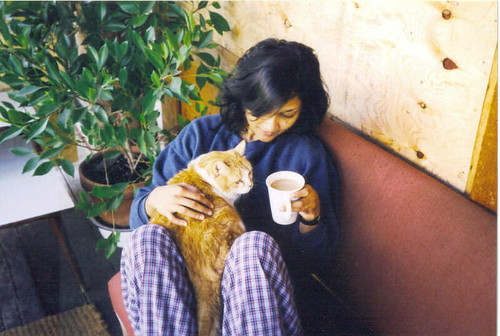Mindfulness, Power of Habit, Four Seconds
Mindfulness: An Eight-Week Plan For Finding Peace in a Frantic World
by Mark Williams and Danny Penman,
with Foreword by Jon Kabat-Zinn
When was the last time any of us took just one solitary raisin, held it steady and observed its tiny wrinkles and its deep rich color before placing it in the mouth to feel the burst of flavor and unique texture, and then finally chewed with awareness, swallowing the little morsels, paying attention as it went down the gullet?
Eight weeks ago, I underwent this Raisin meditation, inspired by an exercise in the book. Until then, a handful of raisins shoved quickly into the mouth and chewed unceremoniously, registering a generic sweet taste, while the mind juggled the bills due at the end of the month, the doctor appointment to be scheduled for the child, the deadline for the project looming up, as the hands tapped away at the keyboard, was the norm.
To be awake in the moment has become tough for today's hectic lifestyle. It has become a race from one moment to the next, working towards something else, thoughts wandering somewhere else, far away from the current experience, leading to needless stress and anxiety.
The book offers a practical plan for finding, or rediscovering, a way to slow down and strive for calmness amidst the chaos around us.
Power of Habit: Why We Do What We Do in Life and Business
by Charles Duhigg
Human beings are creatures of habit. We typically buy the same foods, even the same brands. We take the same route to work and back. We drink a cup of tea/coffee or other favorite beverage first thing in the morning.
We have consciously developed certain actions and routines over time so much so that we do it without much thought or analysis, as if we were born with this set of behavior. We need this auto-pilot mode to cut down on the complex and innumerable decision-making that goes into each of our everyday tasks. “[Habits] are so strong, in fact, that they cause our brains to cling to them at the exclusion of all else, including common sense,” Duhigg writes.
However, our habits are not set in stone. Including the not-so-desirable habits we develop like smoking or junk food consumption. Habits can be changed in a systematic way, which many companies have taken advantage of to increase profits.
Power of Habit is not a self-help book, but an in-depth look at the science of habit formation and change, laid out in three sections: Habits of the Individual, Habits of Successful Organizations, Habits of Societies. Culled from hundreds of scientific papers, with case studies, anecdotes, and personal stories, the author shares interesting findings from the fields of social psychology, clinical psychology, and neuroscience.
Four Seconds: All the Time You Need to Stop Counter-productive Habits and Get the Results You Want
by Peter Bregman
All too often, we do things that are counterproductive- we have the best of intentions but our delivery is off; or maybe, we fail to empathize and end up focusing only on our own agenda; or maybe, we are so overwhelmed and overloaded in today's life that we struggle to meet our own expectations, let alone others'...
With personal anecdotes and insights, Bregman offers us a simple strategy: Pause 4 seconds - the time it takes to take one deep breath - before acting on impulse, so that we can replace bad habits with more productive behaviors.
In many such self-help books, the anecdotes might seem contrived and not applicable to one's own life, but, there are always strategies and ideas to take away from such books.
One anecdote at the beginning of the book that stuck with me is how easily a very common volatile situation can be replaced by a kinder, gentler one through empathy and four seconds of purposeful pause: The author is running late with a client but he knows his wife is waiting for him at the restaurant for dinner as planned ahead and committed to by both parties. Well, of course, job is important and things do come up which one cannot foresee or avoid. But, how we handle it can be thoughtful. The author says he walked with the intention of apologizing for being late and lining up his excuses, while his wife was already upset as this wasn't the first time this has happened. They end up arguing and getting defensive as most couples do. Whereas, the author says, all he had to do was pause for four seconds and say, "Your time is precious as well, I understand your frustration, I know this must not be easy for you to deal with my tardiness..." without any attempt to come up with excuses like, "it was an important client, I could not just cut that meeting short and walk away" which subtly hints that his time, his client, and his work are more important than his wife's somehow...
Four seconds -- I've tried it. It is very hard to pause when one is already quite riled up and ready to attack. The book has some interesting examples and practical tips to be more conscious and engage with purpose to get the results we want.
Labels: book review, non-fiction, self-help





0 Comments:
Post a Comment
<< Home